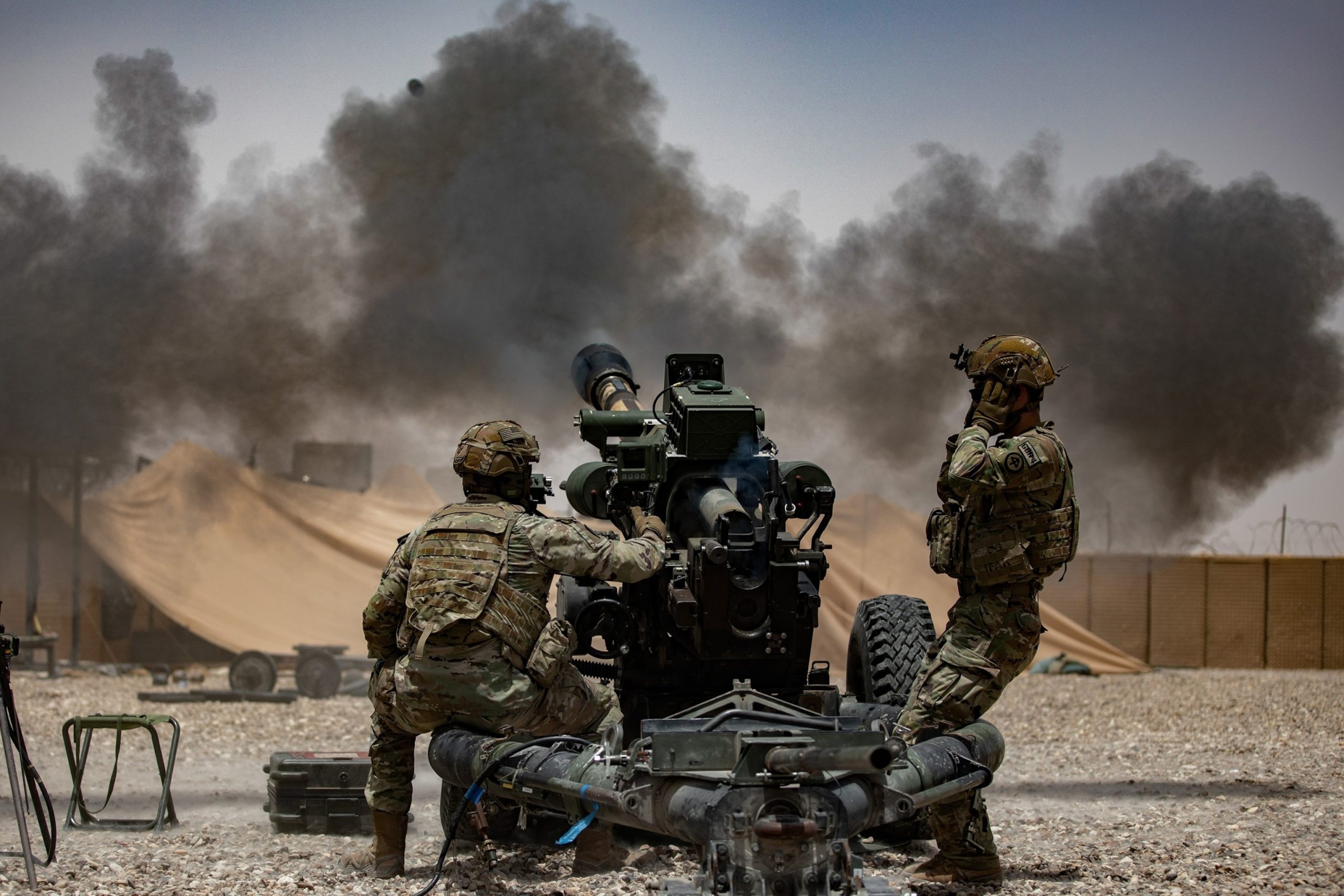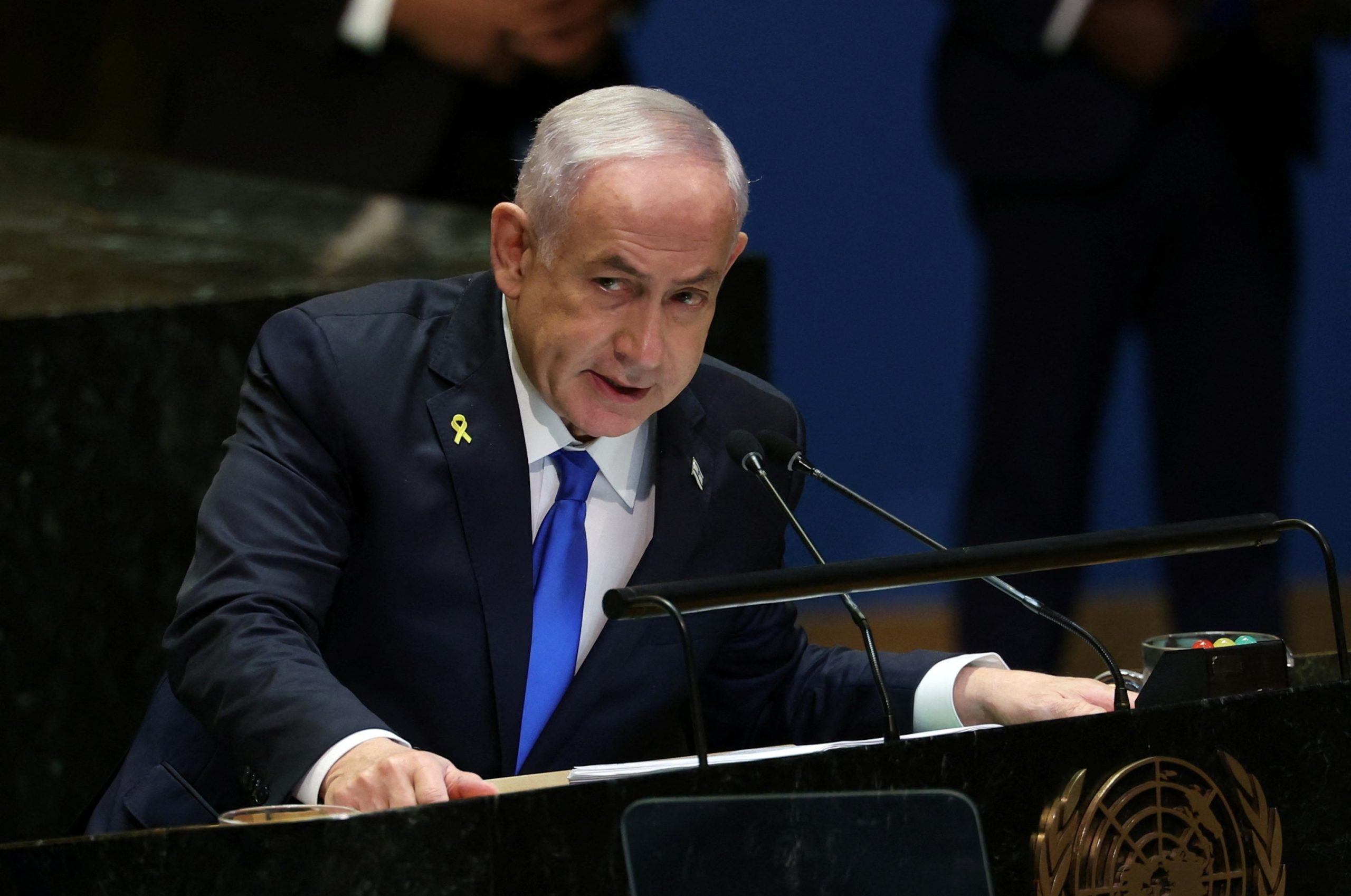Iran-backed Houthi militants in Yemen killed three civilians aboard a Barbadian and Liberian cargo carrier on Wednesday, marking the group’s first fatal strike on a commercial vessel since it began a string of attacks on key shipping lanes in the region in protest of Israel’s war against Hamas, according to U.S. officials.
At about 11:30 a.m. local time, the Houthis launched an anti-ship ballistic missile at the Barbados-flagged and Liberian-owned bulk carrier True Confidence as it sailed through the Gulf of Aden, south of Yemen, the officials said.
“The missile struck the vessel, and the multinational crew reports three fatalities, at least four injuries, of which three are in critical condition, and significant damage to the ship,” U.S. Central Command said in a statement.
The crew abandoned the damaged vessel “and coalition warships responded and are assessing the situation,” according to CENTCOM, referring to an American-led group of military ships deployed in the area to curb Houthi attacks.
The group confirmed responsibility for the strike in their own statement, blaming “American-British aggression” and saying they were supporting Palestinians.
Before Wednesday’s deadly strike, the Houthis had attacked or threatened commercial vessels at least 66 times since Nov. 19, according to U.S. defense officials.
In that same time, U.S. Navy warships in the region have shot down more than 116 incoming missiles, unmanned aerial attack vehicles and waterborne drones aimed at commercial or Navy ships.
“For months, the United States has warned the world about the reckless attacks being taken by the Houthis and worked hard to counter Houthi threats,” one U.S. official said.
State Department spokesperson Matt Miller described the Houthi’s killing of the sailors as “sadly inevitable” during a press briefing Wednesday.
“The Houthis have continued to launch these reckless attacks with no regard for the well-being of innocent civilians who are transiting through the Red Sea,” Miller said. “Now they have unfortunately and tragically killed innocent civilians.”

Houthi fighters shout slogans while attending a funeral for comrades at a mosque in Sana’a, Yemen, on March 5, 2024.
Yahya Arhab/EPA via Shutterstock
The Houthis have said their strikes are retaliation for Israel’s bombardment of Gaza while targeting Hamas in the wake of Hamas’ Oct. 7 terror attack.
In response to the Houthis, the U.S. and U.K. have tried to weaken the group’s offensive power with four major large-scale airstrikes since early January, after the U.S. and other nations demanded the group cease its violence in the Red Sea and Gulf of Aden.
The last of these operations was on Feb. 24.
“These reckless attacks by the Houthis have disrupted global trade and taken the lives of international seafarers simply doing their jobs, which are some of the hardest jobs in the world, and the ones relied on by the global public for sustainment of supply chains,” the U.S. official said.
In addition to the large-scale strikes, the U.S. has carried out 39 “dynamic strikes” on missiles and drones being prepared to launch from Yemen since Jan. 11, four of those being carried out alongside U.K. forces, according to the Pentagon.
Some 150 missiles and launchers were taken out in these strikes, according to the Pentagon’s assessment. Several drones were also destroyed.
So far, the actions of the U.S. and its allies have failed to fundamentally curb the Houthis’ capabilities — raising questions about the strategy and long-term steps — though Pentagon officials have also cautioned that they do not want to risk a broader conflict engulfing the region.
ABC News’ Shannon K. Crawford and Cindy Smith contributed to this report.
The ongoing conflict in Yemen has once again made headlines as the United States recently reported that three individuals were killed on an international cargo carrier in a Houthi strike. The attack serves as a stark reminder of the dangers faced by ships traveling through the region, as the Houthi rebel group continues to target shipping lanes in the area.
The incident occurred on a vessel traveling through the Red Sea, a key shipping route that connects Europe to Asia and sees a significant amount of maritime traffic each year. The cargo carrier was reportedly hit by a missile fired by Houthi rebels, resulting in the tragic loss of three lives and underscoring the vulnerability of ships passing through the region.
The Houthi rebel group, which is backed by Iran, has been engaged in a protracted conflict with the Yemeni government and a Saudi-led coalition since 2015. The group has repeatedly targeted commercial vessels passing through the Red Sea and the Bab el-Mandeb strait, which connects the Red Sea to the Gulf of Aden. These attacks have raised concerns about the safety of shipping lanes in the region and have prompted calls for increased security measures to protect vessels from potential threats.
The targeting of international cargo carriers by the Houthi rebels is particularly concerning, as it not only poses a threat to the lives of those on board but also disrupts global trade and commerce. The Red Sea is a crucial maritime route for the transportation of goods between Europe, Asia, and Africa, and any disruption to shipping lanes in the region can have far-reaching economic consequences.
In response to the recent attack, the United States has condemned the actions of the Houthi rebels and called for an immediate cessation of hostilities in the region. The US Navy has also deployed additional warships to the area to provide protection for commercial vessels passing through the Red Sea and ensure the safety of maritime traffic in the region.
The incident serves as a sobering reminder of the risks faced by ships traveling through conflict zones and highlights the need for increased vigilance and security measures to protect vessels from potential threats. As long as the Houthi rebels continue to target shipping lanes in the region, it is imperative that the international community takes steps to ensure the safety of maritime traffic passing through these waters.



